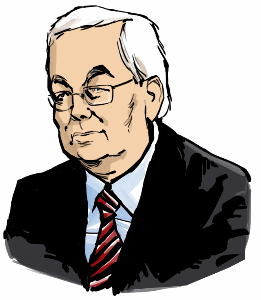© Gunnar Tómasson
2 June 2016
I. Genius: The Infinite Existing in One Spirit
(William Shakespeare, Part I, Bk. I, Ch. II)
727273
12305 = There are men, oceans in reality.
24406 = These waves; this ebb and flow; this terrible go-and-come;
24078 = this noise of every gust; these lights and shadows;
17744 = these vegetations belonging to the gulf;
19067 = this democracy of clouds in full hurricane;
8986 = these eagles in the foam;
18305 = these wonderful gatherings of stars
27054 = reflected in one knows not what mysterious crowd
15106 = by millions of luminous specks,
16232 = heads confused with the innumerable;
24588 = those grand errant lightnings which seem to watch;
26421 = these huge sobs; these monsters glimpsed at; this roaring;
30393 = disturbing these nights of darkness; these furies; these frenzies;
23668 = these tempests; these rocks, these shipwrecks,
14659 = these fleets crushing each other;
24015 = these human thunders mixed with divine thunders,
9712 = this blood in the abyss;
23287 = then these graces, these sweetnesses, these fêtes;
18946 = these gay white veils, these fishing boats,
22914 = these songs in the uproar, these splendid ports,
25011 = this smoke of the earth, these towns in the horizon,
25175 = this deep blue of water and sky, this useful sharpness,
28541 = this bitterness which renders the universe wholesome,
27456 = this rough salt without which all would putrefy,
20594 = these angers and assuagings, this whole in one,
14943 = this unexpected in the immutable,
24179 = this vast marvel of monotony, inexhaustibly varied,
14548 = this level after that earthquake,
26387 = these hells and these paradises of immensity eternally agitated,
14387 = this infinite, this unfathomable –
14906 = all this can exist in one spirit;
16452 = and then this spirit is called genius,
22608 = and you have Æschylus, you have Isaiah, you have Juvenal,
22905 = you have Dante, you have Michael Angelo, you have Shakespeare;
27295 = and looking at these minds is the same thing as to look at the ocean.
727273
II. Prince Hamlet – Genius of Antiquity Incarnate
(Hamlet, Act III, Sc.i, Augustan-Saga-Shakepeare Myth)
727273
1000 = Light of the World
5415 = Enter Hamlet.
Hamlet
18050 = To be, or not to be, that is the Question:
19549 = Whether ’tis Nobler in the minde to suffer
23467 = The Slings and Arrowes of outragious Fortune,
17893 = Or to take Armes against a Sea of troubles,
16211 = And by opposing end them: to dye, to sleepe
13853 = No more; and by a sleepe, to say we end
20133 = The Heart-ake, and the thousand Naturall shockes
19800 = That Flesh is heyre too? ‘Tis a consummation
17421 = Deuoutly to be wish’d. To dye to sleepe,
19236 = To sleepe, perchance to Dreame; I, there’s the rub,
19794 = For in that sleepe of death, what dreames may come,
21218 = When we haue shufflel’d off this mortall coile,
20087 = Must giue vs pawse. There’s the respect
13898 = That makes Calamity of so long life:
24656 = For who would beare the Whips and Scornes of time,
24952 = The Oppressors wrong, the poore mans Contumely,
18734 = The pangs of dispriz’d Loue, the Lawes delay,
16768 = The insolence of Office, and the Spurnes
20720 = That patient merit of the vnworthy takes,
17879 = When he himselfe might his Quietus make
21696 = With a bare Bodkin? Who would these Fardles beare
17807 = To grunt and sweat vnder a weary life,
17426 = But that the dread of something after death,
21935 = The vndiscouered Countrey, from whose Borne
20927 = No Traueller returnes, Puzels the will,
19000 = And makes vs rather beare those illes we haue,
20119 = Then flye to others that we know not of.
20260 = Thus Conscience does make Cowards of vs all,
18787 = And thus the Natiue hew of Resolution
21086 = Is sicklied o’re, with the pale cast of Thought,
17836 = And enterprizes of great pith and moment,
22968 = With this regard their Currants turne away,
18723 = And loose the name of Action. Soft you now,
16746 = The faire Ophelia? Nimph, in thy Orizons
9726 = Be all my sinnes remembred.
Ophelia
5047 = Good my Lord,
17675 = How does your Honor for this many a day?
Hamlet
17391 = I humbly thanke you: well, well, well.
Light of the World’s Exit
In a Virgin’s Well
4000 = Flaming Sword
7284 = Jesus Christ
100 = THE END
727273
III. Love Poem – Hours of waiting at the Barricades
(Les Misérables, Book Twelve, Ch. VI)
1167045
In these hours of waiting what did they do? This we have to tell, for this is history. While the men were making cartridges and the women lint, while a large pot, full of melted pewter and lead destined for the bullet mold was smoking over a hot stove, while the lookouts were watching the barricades with weapons in hand, while Enjolras, whom nothing could distract, was watching the lookouts, Combeferre, Courfeyrac, Jean Prouvaire, Feuilly, Bossuet, Joly, Bahorel, a few others besides, sought each other out and got together, as in the most peaceful days of their student conversations, and in a corner of this bistro turned into a pillbox, within two steps of the redoubt they had thrown up, their carbines primed and loaded resting on the backs of their chairs, these gallant young men, so near their last hour, began to recite a love poem. What poem? Here it is:
Gallant Young Men
4378 = Combeferre
5160 = Courfeyrac
6904 = Jean Prouvaire,
3320 = Feuilly
4668 = Bossuet
2014 = Joly
2778 = Bahorel
Love Poem¹
1137823 = Vous rappelez-vous notre douce vie …
1167045
Background – Context
Opening paragraphs, Book III, Ch. I
(Victor Hugo, William Shakespeare)
Here is the advent of the new constellation.
It is certain that at the present hour, which has been till now the light of the human race grown pale, and that the old flame is about to disappear from the world.
The men of brutal force have, since the human tradition existed, shone alone in the empyrean of history; theirs was the only supremacy. Under the various names of kings, emperors, captains, chiefs, princes, – summed up in the word heroes, – this group of an apocalypse was resplendent. They were all dripping with victories. Terror transformed itself into acclamation to salute them. They dragged after them an indescribable tumultuous flame. They appeared to man in a disorder of horrible light. They did not light up the heavens, – they set them on fire. They looked as if they meant to take possession of the Infinite. Rumbling crashes were heard in their glory. A red glare mingled with it. Was it purple? Was it blood? Was it shame? Their light made one think of the face of Cain. They hated one another. Flashing shocks passed from one to the other; at times these enormous planets came into collision, striking out lightnings. Their look was furious. Their radiance stretched out into swords. All that hung terrible above us.
That tragic glare fills the past. To-day it is in full process of waning.
IV. In the deep heaven of the future
rises in radiancy the sacred group of true stars
(Final paragraph, Book III, I, Ch. v)
473211
14764 = While in the engulfing process
16973 = the flaming pleiad of the men of brutal force
15919 = descends deeper and deeper into the abyss
25085 = with the sinister pallor of approaching disappearance,
14338 = at the other extremity of space,
19166 = where the last cloud is about to fade away,
22942 = in the deep heaven of the future, henceforth to be azure,
22452 = rises in radiancy the sacred group of true stars –
21752 = Orpheus, Hermes, Job, Homer, Æschylus, Isaiah, Ezekiel,
32177 = Hippocrates, Phidias, Socrates, Sophocles, Plato, Aristotle,
31754 = Archimedes, Euclid, Pythagoras, Lucretius, Plautus, Juvenal, Tacitus,
36686 = Saint Paul, John of Patmos, Tertullian, Pelagius, Dante, Gutenberg,
30624 = Joan of Arc, Christopher Columbus, Luther, Michael, Angelo, Copernicus,
26702 = Galileo, Rabelais, Calderon, Cervantes, Shakespeare, Rembrandt, Kepler,
28664 = Milton, Moliѐre. Newton, Descartes, Kant, Piranesi, Beccaria, Diderot,
25406 = Voltaire, Beethoven, Fulton, Montgolfier, Washington.
31241 = And this marvellous constellation, at each instant more luminous,
29467 = dazzling as a glory of celestial diamonds, shines in the clear horizon,
27099 = and ascending mingles with the vast dawn of Jesus Christ.
473211
V. The Vast Dawn of Jesus Christ
Sybil’s Prophecy – Völuspá
(Augustan-Saga-Shakespeare Authors)
93102
4714 = Völuspá
14209 = Quintus Horatius Flaccus
12337 = Publius Virgilius Maro
11999 = Sextus Propertius
11249 = Publius Ovidius Naso
11359 = Snorri Sturluson
9814 = Sturla Þórðarson
5385 = Francis Bacon
7936 = Edward Oxenford
Daybreak
4000 = Flaming Sword
100 = THE END
93102
VI. The Way Night Comes When Day Is Done
Les Misérables – Postscript
81917
In the Père-Lachaise cemetery, in the neighborhood of the potters’ field, far from the elegant quarter of that city of sepulchers, far from all those fantastic tombs that display in presence of eternity the hideous fashions of death, in a deserted corner, beside an old wall, beneath a great yew on which the bindweed climbs, among the dog-grass and the mosses, there is a stone. This stone is exempt no more than the rest from the leprosy of time, from the mold, the lichen, and the birds’ droppings. The air turns it black, the water green. It is near no path, and people do not like to go in that direction, because the grass is high, and they would wet their feet. All around there is a rustling of wild oats. In spring, the linnets come to sing in the tree.
This stone is entirely blank. The only thought in cutting it was of the essentials of the grave, and there was no other care than to make this stone long enough and narrow enough to cover a man.
No name can be read there.
Only many years ago, a hand wrote on it in pencil these four lines, which have gradually become illegible under the rain and the dust, and are probably gone by now:
23994 = Il dort. Quoique le sort fût pour lui bien étrange.
22982 = Il vivait. Il mourut quand il n’eut plus son ange.
15117 = La chose simplement d’elle-même arriva,
19824 = Comme la nuit se fait lorsque le jour s’en va.
81917
In translation:
He is asleep. Though his mettle was sorely tried,
He lived, and when he lost his angel, died.
It happened calmly, on its own,
The way night comes when day is done.
I + III + IV + V + VI = 727273 + 1167045 + 473211 + 93102 + 81917 = 2542548
VII. The King James Bible, 1611; Dedication²
Cipher Value
2542548
***
Calculator for converting letters to cipher values is at:
http://www.light-of-truth.com/ciphersaga.htm
Footnotes
¹French text, Ciphers and English translation: Les Misérables – A Book of Prophecy, 28 January 2016.
²Text and Ciphers: The Mystery School of the West, 29 May 2016.

 Gunnar Tómasson
Gunnar Tómasson